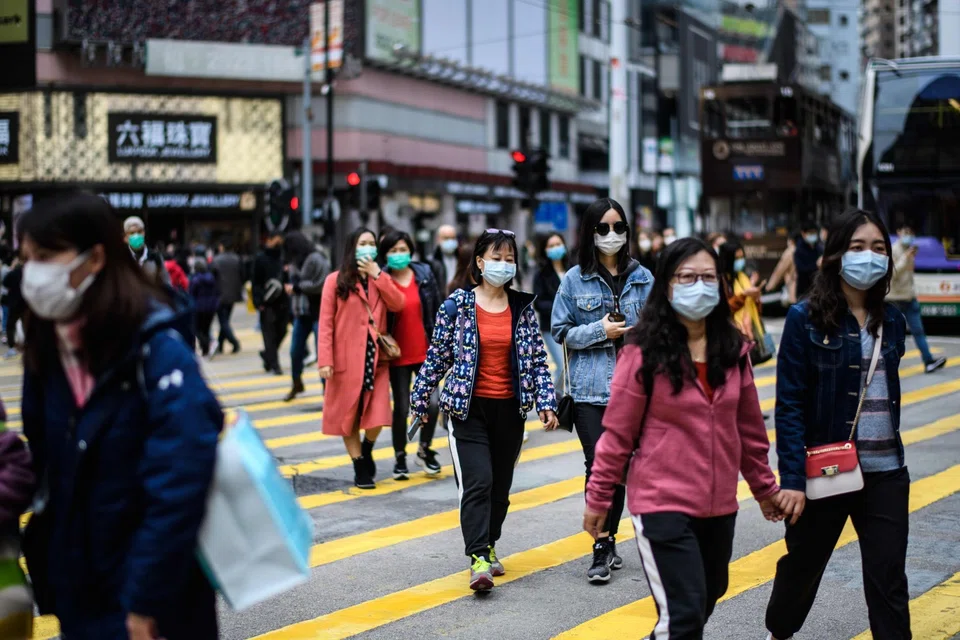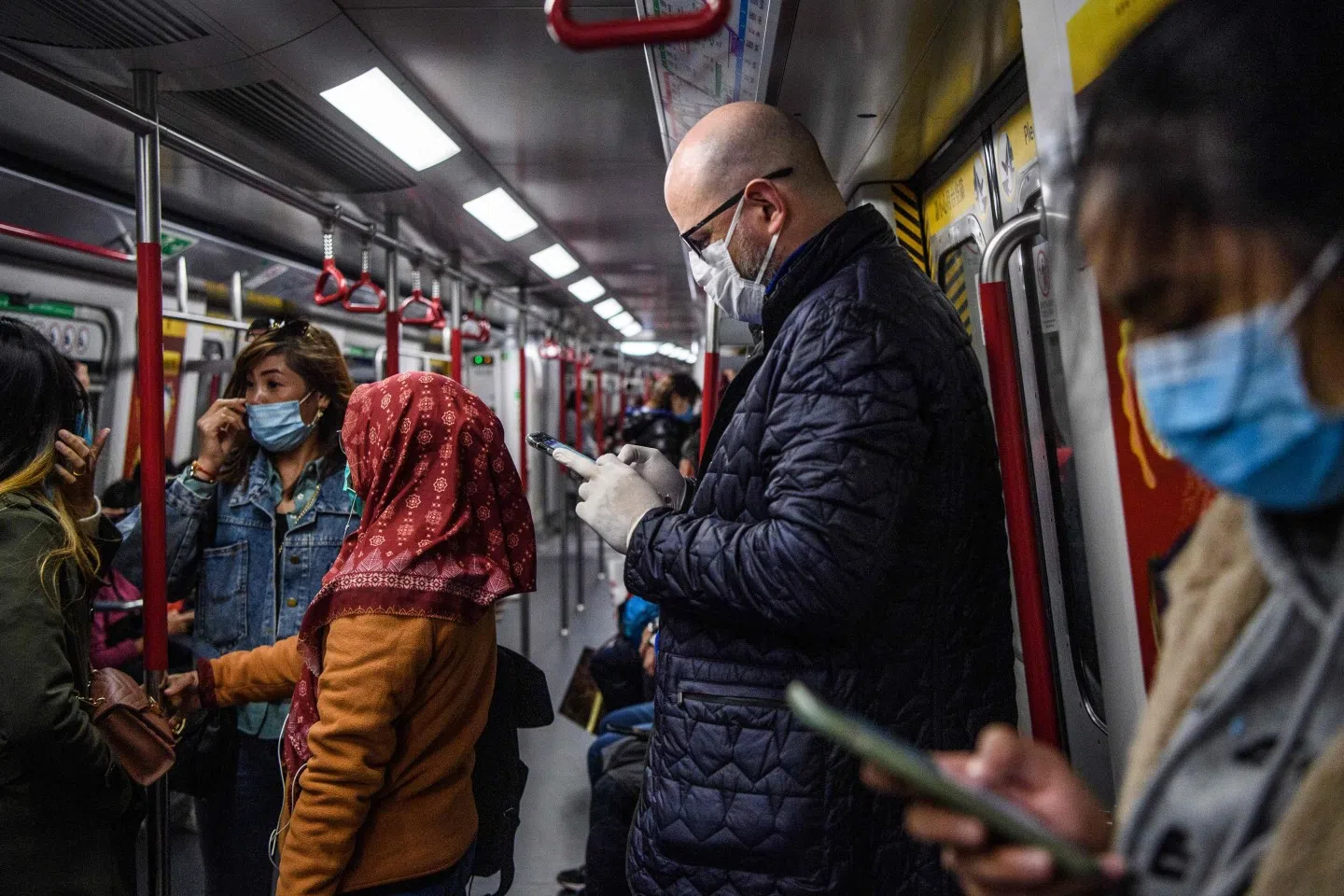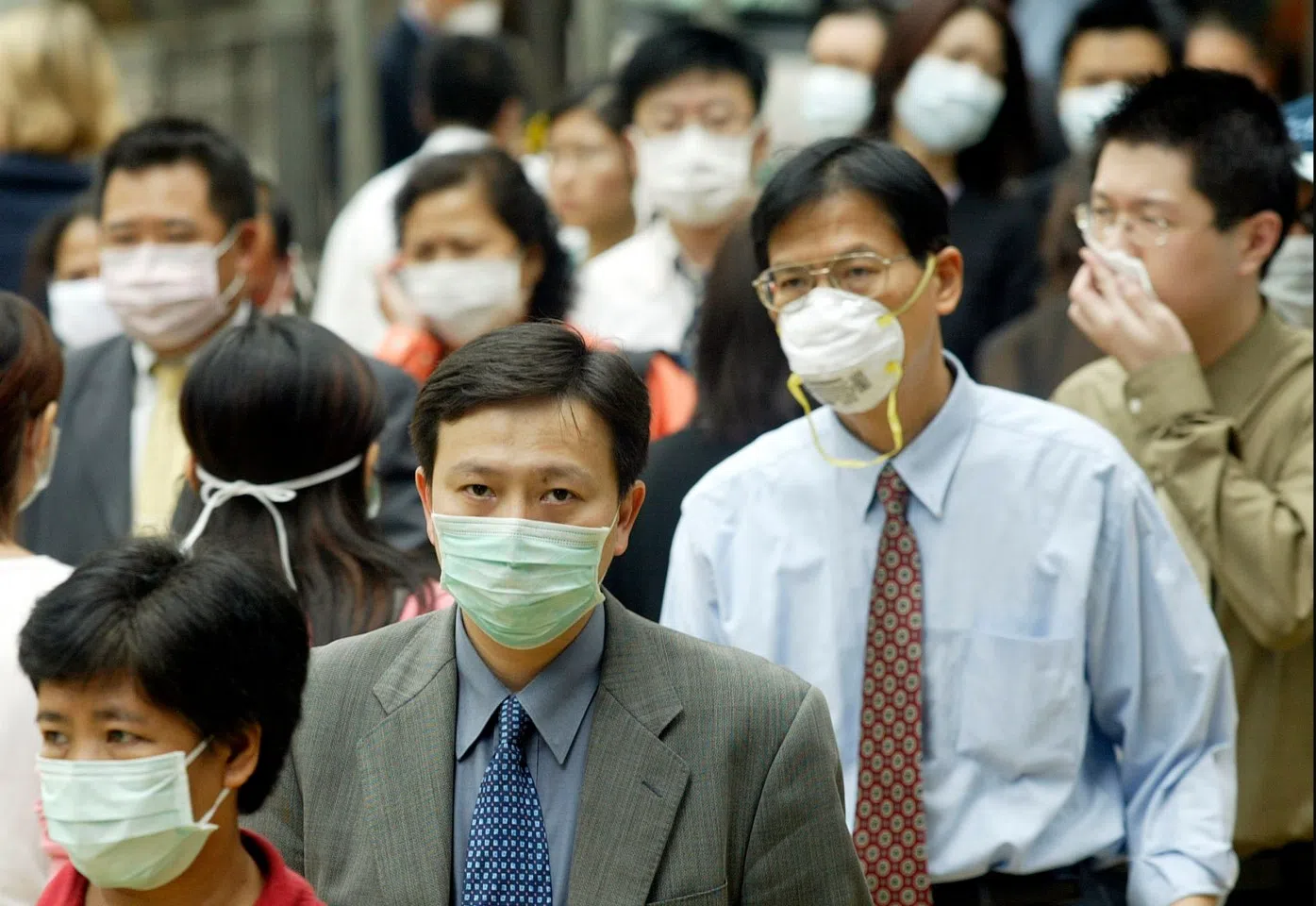Wuhan coronavirus highlights the complexity of Hong Kong's political situation
In 2003, criticisms of how the authorities handled the SARS outbreak were harsh but kind. Now with the outbreak of the Wuhan virus in Hong Kong, people are quicker to cast the first stone despite the authorities' relatively faster response. Politics in Hong Kong is seeping into every facet of life, even the flu.

Since the Wuhan coronavirus was brought to light at the end of December 2019, not only did its outbreak rapidly spread to many other countries, confirmed cases and death tolls in mainland China have been escalating as well. For Hong Kongers, the scale of this current outbreak triggered frightening memories of the 2003 SARS epidemic.
17 years ago, a sudden SARS outbreak took the lives of 299 in Hong Kong in a short span of three months. With echoes of the SARS epidemic, the Hong Kong stock market was the first to feel the impact of the Wuhan coronavirus outbreak - after the first highly suspected case was detected in Hong Kong last week, the stock market crashed within four trading days, plunging a total of 1147 points over the entire week, wiping clean the rise that was accumulated in the last zodiac Year of the Pig.
The spread of the Wuhan coronavirus is creating a greater atmosphere of fear in the Hong Kong stock market, and dampening the positive outlook on the market following the signing of the China-US phase one trade deal. Experts in the securities industry of Hong Kong are generally worried that, if the Wuhan coronavirus is not effectively curbed during the Lunar New Year period, the stock market will continue to plummet once the market opens again on the fifth day of the Lunar New Year (29th January), with a possible plunge to 27,000 points at the start of the Year of the Rat.
Feelings aside, the Hong Kong SAR government's management of the current outbreak is generally adequate and acceptable: it has recently increased its precautionary measures and set up multiple lines of defence, such as raising its response level from "serious" to the highest level of "emergency", enforcing stricter control on arrivals and departures, suspending flights and train services to and fro Wuhan indefinitely, and placing a ban on all Hubei residents and non-Hong Kongers who have visited Hubei in the last 14 days from entering Hong Kong.
At the time of writing, Hong Kong has not seen deaths as a result of the Wuhan coronavirus or of the virus being spread person-to-person in the community. To a certain extent, this is a reflection of the Hong Kong government's immense effort in curbing the outbreak, and a display of its response measures taking effect.

On the other hand, 17 years after the SARS epidemic, it is clear that Hong Konger's awareness of virus outbreaks has greatly increased. Hong Kongers were still not on high alert when a mystery pneumonia was reported in Wuhan last December. However, following the authority's confirmation that it was a novel coronavirus (a new strain of a family of viruses that previously led to illnesses such as SARS and MERS), and that it has spread across different regions in mainland China, Japan, and Korea, Hong Kongers were quick to take precautionary measures. Over the past week, many residents - whether on the trains or in the buses - began to wear protective masks, and masks were virtually out of stock in the market.
Not so kind anymore
Yet, the biggest difference between the SARS epidemic 17 years ago and the current Wuhan coronavirus outbreak is seen in the Hong Kongers' sentiments towards the mainland. In 2003, as a result of the Guangdong officials' covering up of the SARS virus, the virus spread via Guangzhou medical professor Liu Jianlun of the Zhongshan University No. 2 Hospital who visited Hong Kong. While the Guangdong officials were criticised for their actions as a result, the majority of Hong Kongers at that time did not grumble against Beijing but merely blamed the SAR government for its slow response.
Compared with the situation 17 years ago, the Chinese government has indeed learnt its lesson and responded in a much timelier fashion... However, anti-Chinese sentiments are still very strong in Hong Kong society.
In June 2003, then Premier of the People's Republic of China, Wen Jiabao, visited Hong Kong, including the Amoy Gardens in Kowloon Bay where 42 deaths were reported as a result of the SARS epidemic. Many Hong Kongers were touched by this move.
At that time, I was working in the Hong Kong media industry and was tasked to cover this event. I remember the warm and passionate welcome Hong Kongers extended to former premier Wen when he visited the Amoy Gardens. They held big banners and waved China and Hong Kong flags, loudly shouting in Mandarin, "Welcome, welcome, we warmly welcome you."
There was a huge commotion at the scene as Hong Kongers flocked to shake hands with Wen. The guards had to form a human chain to maintain order and escort Wen as he was leaving in his official car. Reporters like me who were reporting the event in close proximity to Wen joked that the Hong Kong government's security measures were inadequate; should there be an ambush somewhere, accidents could have easily occurred.

Now, the rose-tinted glasses are off. Compared with the situation 17 years ago, the Chinese government has indeed learnt its lesson and responded in a much timelier fashion. It also increased transparency in disclosing relevant details, and no deaths have been reported in Hong Kong yet. However, anti-Chinese sentiments are still very strong in Hong Kong society.
In the early stages of the Wuhan coronavirus outbreak, Hong Kong netizens rallied for a movement to occupy the West Kowloon Station which is the Hong Kong section of the Guangzhou-Shenzhen-Hong Kong Express Rail Link. They demanded that the Hong Kong government seal off the station and claimed that if the West Kowloon Station was to continue its operations, tens of thousands of infected mainland residents would enter Hong Kong every day, thus spreading the virus.
Medical personnel took to the Internet to rally Hong Kong's medical staff to go on strike, in a bid to pressurise the Hong Kong government into closing all ports, trains, and flight services to and from Hong Kong and mainland China, and to ban mainland Chinese visitors from entering Hong Kong.
Hong Kong Chief Executive Carrie Lam announced in a press conference on 25 January 2020 that precautionary measures will be increased, but shutting the border with mainland China will not be implemented. This declaration angered some Hong Kongers. Multiple posts on various online discussion forums have sprung up as a result, calling for Hong Kong workers to go on strike on 29 January 2020. These posts have gained widespread approval and support from many netizens.
Honestly speaking, the society could engage in a rational discussion as to whether a border shutdown is necessary to stop the virus from invading Hong Kong. Yet, deep down, this demand of some Hong Kongers is still a manifestation of a certain ideology: it seems like they are attempting to use the coronavirus as a means of de-sinicisation, thereby breaking all connections with the mainland.
Looking back on the warm welcome given to former premier Wen 17 years ago and comparing it with the situation now, I cannot help but lament about the complexity of Hong Kong's political situation, and the speed at which society is changing.
Hong Kong is indeed a tough nut to crack.
Editor's note: In a second press conference held today (28 January), Hong Kong Chief Executive Carrie Lam announced the suspension of all cross-border rail routes between the mainland and Hong Kong from midnight on Thursday, which includes the closure of checkpoints for cross-border rail passengers at Hung Hom and West Kowloon. Services at six border checkpoints will be suspended as well. Man Kan To and Sha Tau Kok checkpoints, the two major border checkpoints, will be closed to all passenger traffic. Entry to individual travellers from mainland China will be denied as well.


![[Big read] When the Arctic opens, what happens to Singapore?](https://cassette.sphdigital.com.sg/image/thinkchina/da65edebca34645c711c55e83e9877109b3c53847ebb1305573974651df1d13a)


![[Video] George Yeo: America’s deep pain — and why China won’t colonise](https://cassette.sphdigital.com.sg/image/thinkchina/15083e45d96c12390bdea6af2daf19fd9fcd875aa44a0f92796f34e3dad561cc)